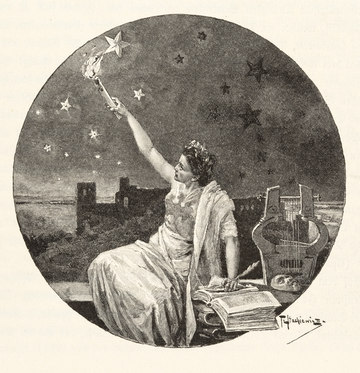The introduction of mandatory primary schooling from the middle of the eighteenth century resulted in broad masses of the population becoming literate. However, the schools not only provided elementary education but also imbued the young with images of national history and developed their awareness of language.
For the smaller peoples of Central Europe in particular, the introduction of mandatory schooling played an essential role in the codification of national languages, as the language had to be standardized in written form in order for textbooks to be produced. Speakers of a language that had previously only existed in various regional dialects (sometimes differing greatly from one another) were now initiated into one officially approved ‘high’ form of their mother tongue. While the feeling of identification with a certain language had previously been somewhat diffuse, it now gained in strength, giving its speakers a greater sense of closeness to their respective community and traditions.
Most especially in the case of the smaller or less prestigious languages, however, the educational structures were undeveloped and there was a shortage of qualified teachers with a mastery of the requisite language. This often led to teaching being carried out in ‘higher-ranking’ languages. Many Slovenes or Ukrainians, for example, were forced by the lack of widespread schooling in their mother-tongue to attend German or Polish schools, where in the process of receiving an education they lost their linguistic identity. In this way many members of disadvantaged peoples ended up joining the respective dominant nation. This process of acculturation was in part promoted by the state education authorities, especially in the Hungarian half of the Monarchy, where the schools were a major vehicle for the vehement policy of Magyarization pursued amongst Romanians, Slovaks and southern Slavs. In spite of the aggressiveness of this policy, however, the option of education in the foreign language was often rejected, which led to an extremely high proportion of illiterates in these disadvantaged language groups in particular.
Schools also played a particularly important role in the propagation of images of national history, with mandatory primary education being one of the foremost factors in nationalism becoming a mass phenomenon. Teachers imbued pupils with the deceptive ideal of a ‘common national destiny’ – and thus contributed to the breaking down of feelings of social, estates-based or confessional community. Now, Tyrolean peasants might see Styrian students or north-Bohemian industrial workers as ‘comrades in the German people’ – but felt separated by unsurmountable national barriers from Italian peasants working only a few kilometres away under conditions very similar to their own.
Translation: Peter John Nicholson
Kann, Robert A.: Zur Problematik der Nationalitätenfrage in der Habsburgermonarchie 1848–1918, in: Wandruszka, Adam/Urbanitsch, Peter (Hrsg.): Die Habsburgermonarchie 1848–1918, Band III: Die Völker des Reiches, Wien 1980, Teilband 2, 1304–1338
Křen, Jan: Dvě století střední Evropy [Zwei Jahrhunderte Mitteleuropas], Praha 2005
Rumpler, Helmut: Eine Chance für Mitteleuropa. Bürgerliche Emanzipation und Staatsverfall in der Habsburgermonarchie [Österreichische Geschichte 1804–1914, hrsg. von Herwig Wolfram], Wien 2005
-
Chapters
- The birth of nations
- The hierarchy of languages
- ‘Tell me what language you speak and I will tell you who you are.’
- Unity in diversity? The failure of the idea of a ‘greater Austrian’ nation
- The role of history: Concerning ‘historic’ and ‘history-less’ peoples
- The drive for unification
- The role of schools in the growth of national identity



